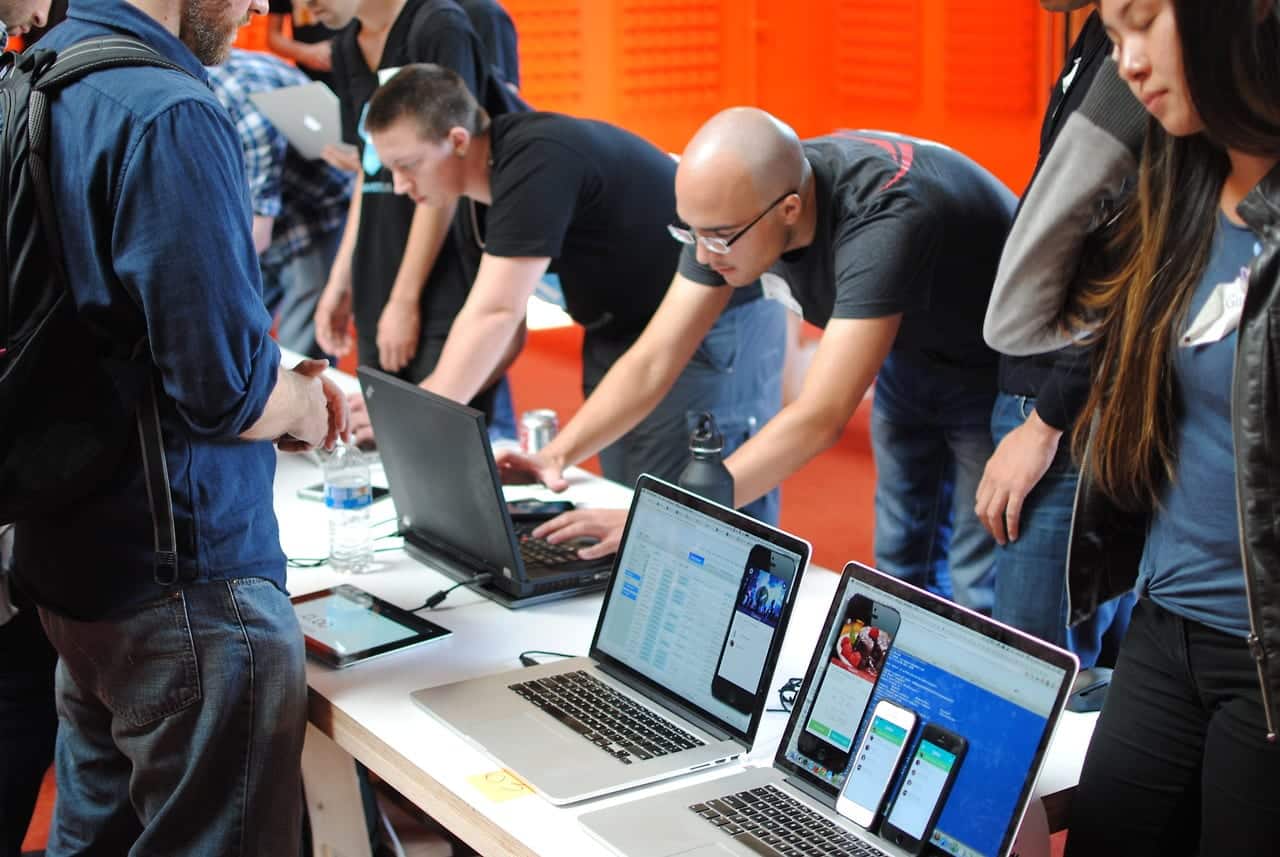What Is A Hackathon?
A hackathon is an event at which tomorrow’s technology is developed (especially software and electronics, for the moment) by people of all ages and qualifications. In many cases, hackathons comprise mostly young people (especially those between the ages of 16-30 years).

August 3, 2014.
Image obtained with thanks from Nico on Tumblr.
Why do hackathon organizers have so much faith in young people who have never even gotten a college education, or taken an official technology course?
The answer: Many of them taught themselves programming, electrical engineering, and more from childhood. Thankfully, the internet allows everyone to teach themselves these trades without a teacher, and more effectively than even a university could, and it can be done for free!
You can access online communities and chat rooms with experienced developers via forums, Internet Relay Chat (IRC), Facebook groups, or you can even befriend an experienced programmer that may guide you. You can replay a YouTube video explaining what you need to know as many times as you need to until you have a crystal clear understanding. You can even find alternative explanations on the internet very easily, this is excellent when combined with the recruitment benefits of hackathons mentioned in the ‘Hackathons Vs Traditional Job Interviews/Recruitment Techniques‘ section below.
How Are Hackathons Beneficial To Society?
Hackathons could be considered somewhat of a cause, as they are not only free of charge, but they provide attendants with technology to work on (along with everything else they need for the moment such as APIs, food, electricity, and work desks). Hackathons provide an outlet for creativity which accelerates innovation like no other effort has.
Hackathons provide a competitive environment in which people are right beside others which are just as smart as they are, motivating them to do their best and prove their capabilities to the judges, and everyone else in attendance.
Hackathons Vs Traditional Job Interviews/Recruitment Techniques
For job applications there are often requirements such as a minimum number of CXC (or GCSE) passes and a degree in the trade you are pursuing. How do hackathons compare to this?
Before I get into that, hackathon attendants develop their technologies and showcase them at the hackathon. This way, prospective employers can see just how brilliant they are (and there are many brilliant minds at hackathons) without even glancing at their resumes, and they will know whether or not they should invite them in for a job interview.
A degree or certification in a certain technology-related trade does not necessarily mean that a job applicant is passionate, experienced, or a genius. Every manufacturer wants geniuses that generate great ideas on their design teams, and resumes normally don’t show that. Hackathons will, because prospective employers will see the type of ideas they come up with. This compliments the existing job interview process nicely.
Types Of Hackathons
There are various types of hackathons, some of which are not even called hackathons:
- Hackathons for all ages to develop technologies.
- High school hackathons.
- Hackathons for exceptionally bright people who already have a great deal of experience. Examples: YC Hacks and the Greylock Hackfest.
- Beginner’s hackathons aimed at helping younger people to become developers, and gain hackathon experience. Example: MHacks.
Alternative names for hackathon include hackfest, hack day, codefest, and ‘hacks’ is appended to some of their names to clearly indicate that they are hackathons.
Hackathon Sponsorship
Most events are funded by both ticket sales and sponsors. Hackathon admission is often free, and in that case, they have to convince sponsors to offer enough money to cover all expenses. Fortunately, an event with free admissions could attract a significant number of attendants if promoted effectively. Events with many spectators are most attractive to sponsors
How Sponsors Benefit From Hackathons
Sponsors benefit from hackathons by using them to promote their brand or individual products, either by setting up large signs with their names on them, or showing off their technology at the spectators at the event.
In the case of hackathons, there is an opportunity for electronics manufacturers to offer attendants their own technologies (for example: Pebble could offer one of them a smartwatch to hack), so that they can get credit for helping them to build their inventions. That is especially helpful if they win, because the winners will get the spotlight.
Read technology-related news in the technology category, and more technology reference articles in the technology library. If you’re looking for hackathons, there is a worldwide hackathon directory just for that.




